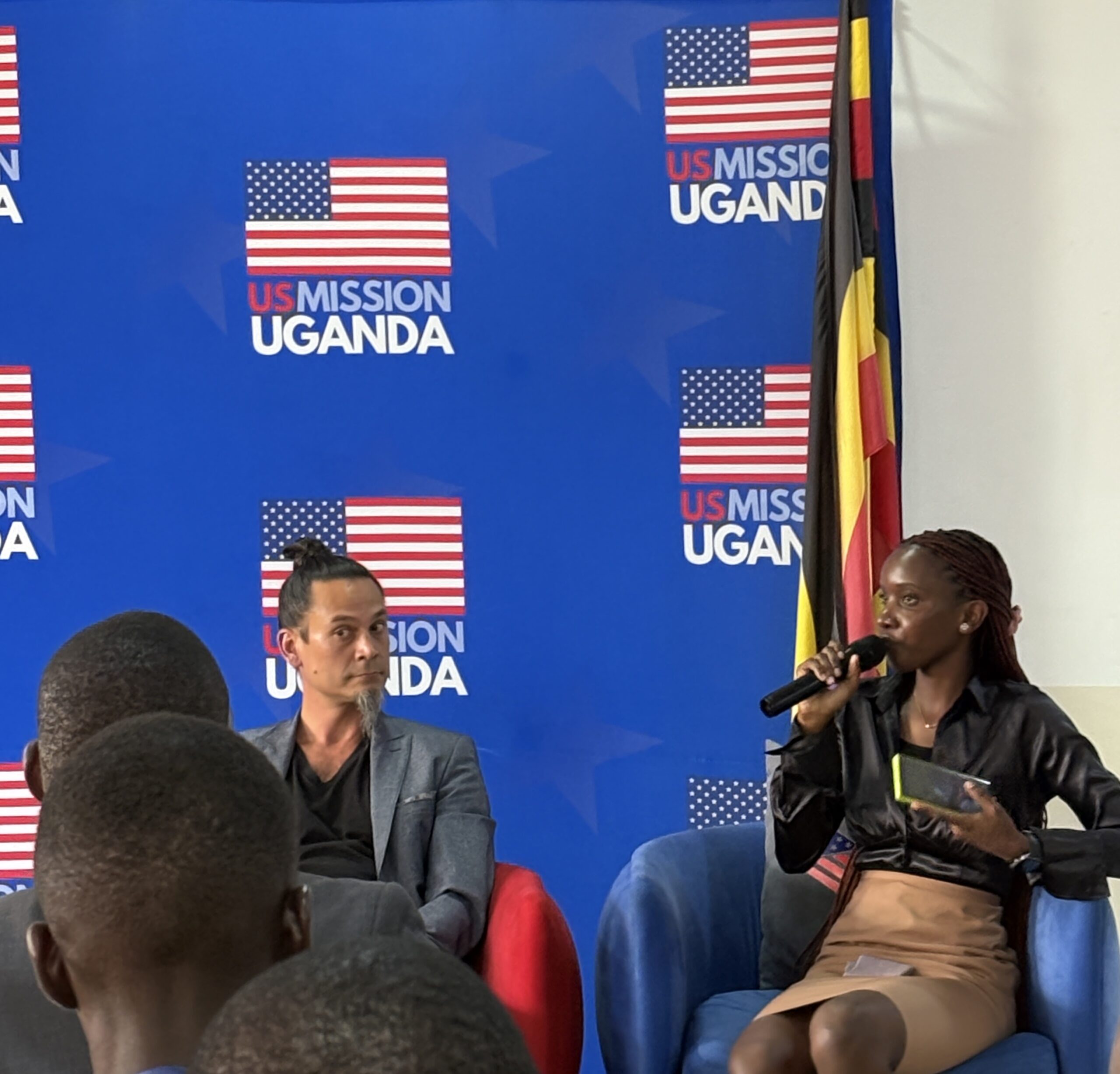In an era where artificial intelligence (AI) and venture capitalism are reshaping industries at an unprecedented pace, it is essential for NGOs to understand how these forces influence not just the private sector, but also our work in social impact. BIU recently attended the panel discussion titled “Career Trajectories in the Age of Automation: The Influence of AI and Venture Capitalism on Contemporary Career Choices,” featuring distinguished speakers Patricia Nakawalya (Otic Foundation), John Britell (Side B Group), and Famious Orishaba (Stanbic Bank).
The panel discussion brought together forward-thinking people to unpack how artificial intelligence and venture capitalism are reshaping today’s career landscape. While these changes are often discussed in the context of the private sector, the insights shared are equally critical for the NGO space, especially as organizations strive to remain agile, efficient, and impactful in a rapidly changing world. The conversation highlighted not only the importance of embracing AI and innovation but also the necessity of shifting mindsets and skillsets to thrive in this new era. Below are some key takeaways from the discussion, along with how they can directly inform and benefit the work of NGOs today:
- AI is a Tool, Not a Replacement. One of the strongest messages was that AI should not replace our fundamental knowledge and skills. Instead, it should supplement our existing capabilities. In the NGO world, this means using AI to streamline tasks like data entry, donor communications, or grant reporting, freeing up time to focus on strategic planning and community impact.
- Repetitive Tasks Can Be Automated, Freeing Up Capacity. AI can handle repetitive and time-consuming tasks. For NGOs, this could mean automating beneficiary follow-ups, social media scheduling, or monthly reports. This allows staff to focus on deeper, human-centric work such as community engagement, advocacy, and program design.
- Adopting a Curiosity-Driven Mindset. The panel emphasized that anyone, regardless of their field, should cultivate a mindset of curiosity and lifelong learning, especially when it comes to AI. This is a powerful message for NGOs, which often operate with limited resources: Investing in staff training to understand and leverage AI can lead to long-term sustainability and innovation.
- AI Requires Contextual Knowledge to Be Effective AI isn’t a “plug-and-play” solution. For it to be effective, users must already understand the field they’re applying it to. For NGOs, this highlights the need for domain-specific knowledge, whether it’s in health, education, or human rights, when using AI for data analysis or monitoring and evaluation.
- Everyone Can Leverage AI, Not Just Tech Experts. The speakers made it clear: AI isn’t just for programmers. Whether you’re in fundraising, operations, or field work, you can use AI tools to be more efficient. This is empowering for NGO staff who may not have tech backgrounds, emphasizing that democratizing access to AI tools is both possible and necessary.
- Venture Capitalism’s Influence on Career Dynamics
John Britell spoke about how venture capitalism is not just fueling startups but also shaping the future of work. NGOs can learn from this agile, experimental mindset by exploring impact investment models, innovative funding approaches, and scalable social entrepreneurship. - STEM as a Gateway for Interdisciplinary Growth. This program under the STEM initiative reminded attendees that careers are no longer linear. NGOs should recognize and encourage interdisciplinary skill-building within their teams.
Why This Matters for NGOs Today?
In today’s climate, marked by resource constraints, urgent global challenges, and increased demand for accountability, AI and emerging tech offer practical solutions to scale impact without scaling cost. Through understanding these tools and fostering a growth-oriented mindset within their teams, NGOs can future-proof their operations and remain relevant and effective.
As Patricia Nakawalya from the Otic Foundation put it, “Automation should not make us afraid; it should push us to dream bigger about what’s possible when we remove the repetitive barriers that limit our potential.”

















Leave a Reply